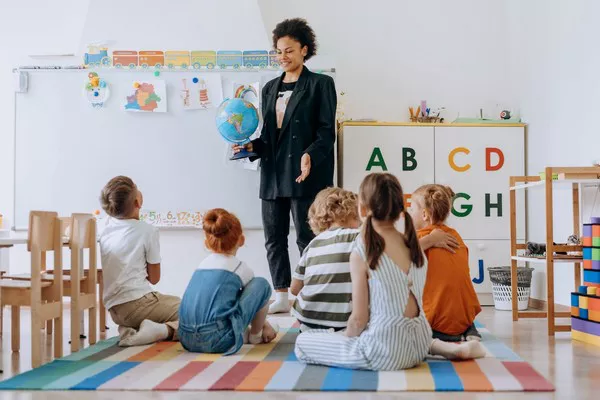Friendship, a cornerstone of the human experience, is a concept that transcends cultural, geographic, and temporal boundaries. As we navigate the complexities of relationships, the notion of friendship takes center stage, offering a tapestry of shared experiences, mutual support, and a sense of belonging.
Friendship as a Fundamental Human Need
At its core, friendship is often considered a fundamental human need, essential for emotional well-being and social development. From early childhood to late adulthood, individuals seek and cultivate friendships as they navigate the various stages of life. Psychologically, friendships contribute to a sense of belonging, providing a support system that can mitigate feelings of loneliness and isolation. The need for connection and camaraderie, inherent in the human experience, finds its expression in the intricate dance of friendships that ebb and flow throughout a lifetime.
The Evolution of Friendship in the Digital Age
As society undergoes rapid technological advancements, the landscape of friendship has evolved in tandem. The advent of the digital age has redefined the ways in which individuals form, maintain, and perceive friendships. Social media platforms enable connections across vast distances, allowing people to forge friendships with individuals they may never meet in person. While digital friendships offer new possibilities for global connections, they also raise questions about the authenticity and depth of these relationships compared to traditional face-to-face interactions.
Cultural Variances in the Concept of Friendship
Friendship is a concept that takes on various hues across different cultures. Cultural norms and values shape the expectations and dynamics of friendships, influencing the ways in which individuals approach and navigate these relationships. In some cultures, friendships are deeply communal, with a strong emphasis on group cohesion and collective well-being. In others, individual autonomy and personal fulfillment may take precedence, influencing the nature of friendships. Exploring these cultural variances offers insights into the diverse ways in which people define, experience, and prioritize friendship.
The Impact of Friendship on Mental Health
Beyond its emotional significance, friendship plays a pivotal role in mental health. Research consistently highlights the positive impact of social connections on psychological well-being. Friends often serve as a buffer against stress, providing emotional support and understanding during challenging times. The sense of belonging that accompanies strong friendships contributes to resilience and can mitigate the risk of mental health issues. In contemplating the link between friendship and mental health, it becomes evident that these relationships are not only a source of joy but also a protective factor for overall well-being.
Friendship as a Catalyst for Personal Growth
Friendships have the power to catalyze personal growth and development. Through interactions with friends, individuals gain new perspectives, insights, and experiences that contribute to their evolution as individuals. Friendships challenge preconceived notions, broaden horizons, and foster a continuous process of learning and self-discovery. The reciprocal nature of friendships encourages mutual support in the pursuit of goals and aspirations, creating a symbiotic relationship that nurtures personal growth.
Navigating Challenges in Friendships
While friendships bring joy and enrichment, they are not immune to challenges. Conflicts, misunderstandings, and changing circumstances can strain even the strongest of friendships. Navigating these challenges requires effective communication, empathy, and a willingness to address issues head-on. The ability to weather storms and emerge stronger on the other side is a testament to the resilience of genuine friendships. Acknowledging and navigating challenges becomes an integral part of the tapestry of friendship, adding depth and texture to the shared journey.
Friendship and the Art of Listening
Listening is a cornerstone of meaningful friendships. The ability to truly listen, without judgment or preconceived notions, fosters an environment where individuals feel heard and understood. In the cacophony of modern life, where distractions abound, the art of listening becomes a rare and precious gift. Friends who actively engage in empathetic listening create a space where emotions can be expressed, vulnerabilities shared, and connections deepened. The power of listening extends beyond words—it is a silent affirmation of the value placed on the friendship itself.
Friendship’s Role in Fostering Empathy
Empathy, the ability to understand and share the feelings of another, is a quality that flourishes in the soil of authentic friendships. Friends often serve as sounding boards, offering perspectives that transcend individual experiences. Through shared joys and sorrows, friends develop a heightened sense of empathy that extends beyond their own lives. This empathetic connection is a bridge that spans differences, fostering understanding and compassion in a world that is often marked by diversity and individuality.
Friendship Across the Lifespan
Friendships undergo transformations as individuals move through different life stages. Childhood friendships, marked by innocence and shared play, give way to the complexities of adolescent and adult relationships. The friendships formed in school, college, or early professional life often shape one’s identity and provide a sense of continuity. As individuals age, the significance of friendships may evolve, with lifelong friends becoming pillars of support and companionship. Understanding the evolving nature of friendships across the lifespan sheds light on the dynamic and enduring qualities of these relationships.
The Intersection of Friendship and Romantic Relationships
The intersection of friendship and romantic relationships adds another layer of complexity to the tapestry of human connections. Many successful romantic relationships are built on a foundation of friendship, where partners not only share a romantic bond but also a deep friendship characterized by trust, understanding, and companionship. The ability to be friends first lays the groundwork for lasting and fulfilling romantic partnerships. Exploring the interplay between friendship and romance reveals the symbiotic relationship that can exist between these two realms of human connection.
Friendship’s Influence on Societal Harmony
On a broader scale, friendships contribute to societal harmony and cohesion. Strong social bonds create communities characterized by trust, mutual support, and shared values. Friendships that transcend societal divisions, such as those formed between individuals from different backgrounds or cultures, play a role in fostering inclusivity and understanding. Societal well-being is intricately linked to the quality of interpersonal connections, making friendship not only a personal but also a societal asset.
Conclusion
In conclusion, the concept of friendship is a rich and multifaceted tapestry, woven with threads of connection, trust, understanding, and shared experiences. As we contemplate the significance of friendship, we recognize its universal appeal while acknowledging the cultural nuances that shape its expression. Friendship is a dynamic force that influences mental health, catalyzes personal growth, and contributes to societal harmony. Through the lens of diverse perspectives, we gain a deeper appreciation for the profound impact that friendships have on the human experience—a testament to the enduring power of human connection.
Related topics:



















